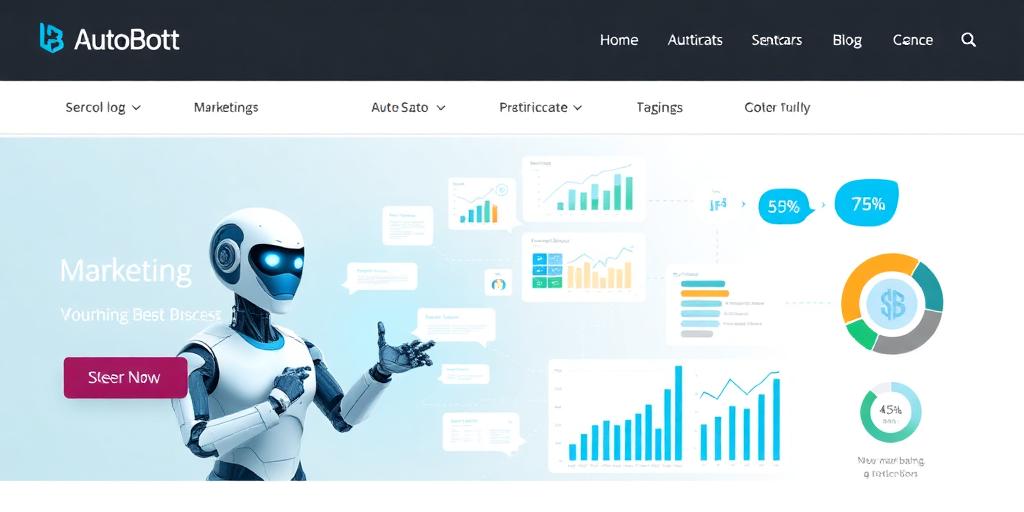Chatbots in Marketing: Hype or Help?
Chatbots have emerged as a significant trend in the marketing landscape, promising enhanced customer engagement and streamlined operations. However, the question remains: Are chatbots a genuine asset or merely overhyped technology? This article provides an authoritative analysis of chatbots in marketing, exploring their capabilities, limitations, and practical applications.
Understanding Chatbots
Chatbots are AI-powered software applications designed to simulate human conversation. They operate through various channels, including websites, messaging apps, and social media platforms. By leveraging natural language processing (NLP) and machine learning (ML), chatbots can interpret user queries and provide relevant responses.
The Promise of Chatbots in Marketing
Chatbots offer several potential benefits for marketing professionals:
- 24/7 Availability: Chatbots provide round-the-clock customer support, ensuring immediate assistance regardless of time zone or business hours.
- Enhanced Customer Engagement: By offering personalized interactions, chatbots can improve customer satisfaction and foster stronger relationships.
- Lead Generation: Chatbots can gather valuable customer data, such as contact information and preferences, to qualify leads and nurture prospects.
- Cost Reduction: Automating routine tasks with chatbots can reduce the workload on human agents, leading to significant cost savings.
- Scalability: Chatbots can handle multiple conversations simultaneously, making them ideal for businesses experiencing rapid growth or seasonal spikes in demand.
The Limitations of Chatbots
Despite their advantages, chatbots are not without limitations:
- Limited Understanding: Chatbots may struggle to comprehend complex or nuanced queries, leading to frustrating customer experiences.
- Lack of Empathy: As automated systems, chatbots cannot replicate human empathy, which can be crucial in resolving sensitive issues.
- Dependence on Data: The effectiveness of chatbots depends on the quality and quantity of training data. Insufficient data can result in inaccurate or irrelevant responses.
- Maintenance Requirements: Chatbots require ongoing maintenance and updates to ensure optimal performance and adapt to changing customer needs.
- Security Risks: Chatbots can be vulnerable to security breaches, potentially exposing sensitive customer data to unauthorized access.
Practical Applications of Chatbots in Marketing
When implemented strategically, chatbots can be valuable tools for marketing. Here are some practical applications:
- Customer Support: Provide instant answers to frequently asked questions and resolve basic customer issues.
- Product Recommendations: Offer personalized product suggestions based on customer preferences and browsing history.
- Appointment Scheduling: Automate appointment booking and manage calendars efficiently.
- Order Tracking: Allow customers to track their orders and receive real-time updates.
- Feedback Collection: Gather customer feedback and identify areas for improvement.
Overcoming the Hype: A Balanced Perspective
To maximize the benefits of chatbots, it is essential to adopt a balanced perspective. Rather than viewing chatbots as a replacement for human interaction, consider them as a complementary tool that enhances customer service and supports marketing efforts. Focus on implementing chatbots in areas where they excel, such as handling routine inquiries and providing basic information. For complex or sensitive issues, ensure a seamless handoff to human agents.
Conclusion
Chatbots hold significant potential for transforming marketing, but they are not a panacea. By understanding their capabilities, limitations, and practical applications, businesses can leverage chatbots to improve customer engagement, streamline operations, and drive growth. The key lies in strategic implementation and a focus on delivering value to customers. As technology evolves, chatbots will undoubtedly become more sophisticated, but their effectiveness will always depend on thoughtful integration and a commitment to providing exceptional customer experiences.









